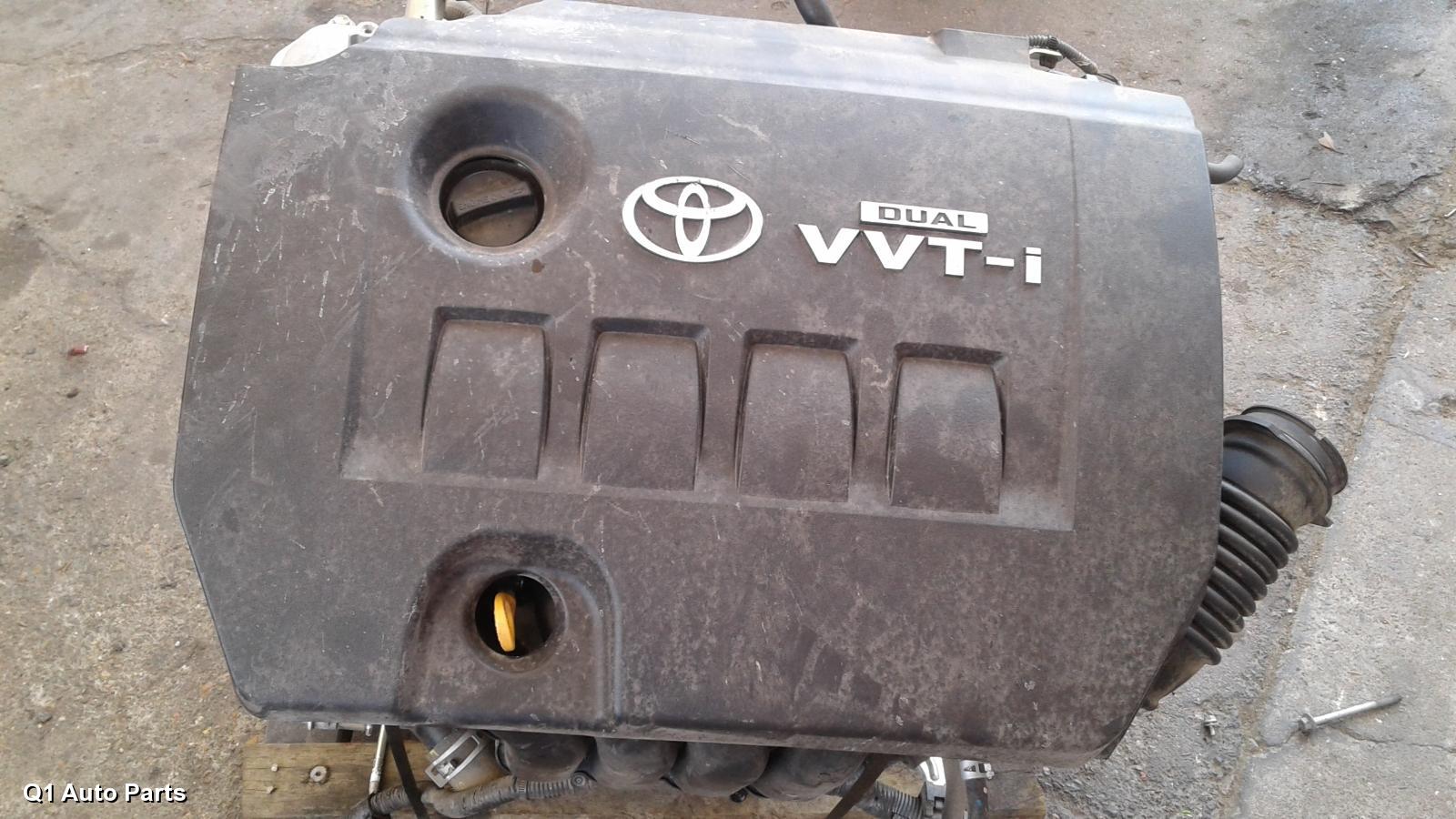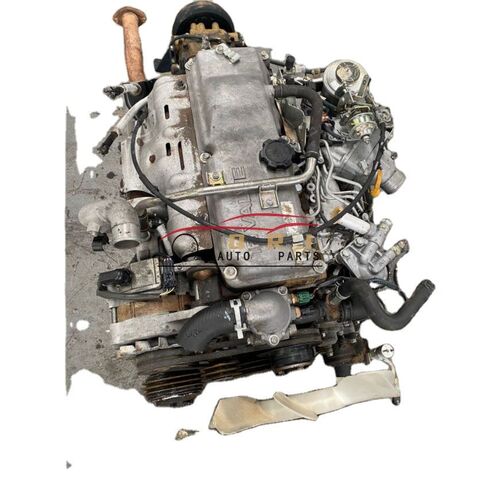Explore Top Quality and Value: Your Guide to Acquiring a Previously Owned Engine
When thinking about the purchase of a second-hand engine, recognizing the elaborate balance in between high quality and value is critical. An extensive assessment of engine integrity, history, and problem is important to make sure a sound financial investment. By carrying out appropriate inspections and research study, possible buyers can navigate the complexities of the marketplace extra effectively. The nuances of guarantee options and prices approaches can significantly affect the overall decision-making procedure. As you consider these factors, one concern continues to be: what specific elements will inevitably guide your choice in this critical financial investment?
Comprehending Engine Types
When considering the purchase of a pre-owned engine, comprehension of the numerous engine types is essential for making a notified decision. Engines can generally be classified right into 2 main types: inner combustion engines and electrical engines. Inner combustion engines, that include fuel and diesel variations, rely upon the combustion of fuel to generate power. Gasoline engines are commonly lighter and rev higher, making them ideal for efficiency automobiles, while diesel engines are renowned for their torque and fuel performance, commonly favored in heavy-duty applications.
On the other hand, electrical engines make use of electrical energy stored in batteries to power the vehicle, supplying a cleaner alternative with fewer relocating parts and minimized upkeep requirements. Within these groups, there are better distinctions, such as four-stroke versus two-stroke internal combustion engines, and different electric motor configurations.
Recognizing these distinctions is essential, as they impact efficiency, compatibility with existing car systems, and long-lasting functional costs. By familiarizing oneself with the various kinds of engines readily available, prospective customers can much better evaluate their requirements and make choices that line up with their vehicle's demands and their individual preferences.

Reviewing Engine Condition
A comprehensive analysis of engine condition is vital for anyone taking into consideration the acquisition of a second-hand engine. Begin with an aesthetic assessment; look for indications of oil leakages, deterioration, or any kind of physical damages to the engine block. A clean engine is frequently a measure of excellent upkeep techniques, while excessive crud may suggest forget.
Next, assess the engine's parts, consisting of the timing belt, gaskets, and seals. Try to find deterioration, as these components can be expensive to change. Furthermore, take a look at the engine installs, as harmed places may lead to vibrations and additional mechanical concerns.
A compression test is important to assess interior engine wellness. Uniform compression across all cyndrical tubes indicates a properly maintained engine, whereas significant disparities may direct to internal damage or wear.
Paying attention to the engine throughout a startup can give valuable understandings; any uncommon sounds, such as knocking or rattling, might suggest deeper issues. Ultimately, preferably, demand a trial run to examine performance under load. By meticulously evaluating these variables, prospective purchasers can make informed decisions and secure a high quality second-hand engine.
Monitoring Engine Background
Understanding the engine's background is critical for making a well-informed purchase. Expertise of previous usage, maintenance documents, and any kind of previous problems can significantly affect the engine's dependability and longevity. Start by requesting the car identification number (VIN) or engine identification number, which permits you to trace the engine's history.
Utilize readily available resources, such as Carfax or AutoCheck, to get a vehicle background report. This report will give important understandings, including mishap history, service records, and previous ownership information. Toyota RunX RSI. Pay certain interest to additional hints any signs of serious damages or duplicated repairs, which might show underlying concerns
Inquire concerning maintenance routines executed on the engine. Regular oil modifications, timing belt replacements, and click here to find out more other safety nets show accountable ownership. In addition, ask if the engine has gone through any adjustments, as non-standard changes can impact performance and compatibility with your automobile.
Finally, ideally, seek verification from a trusted mechanic who can examine the engine's condition based upon its history (Toyota RunX RSI). This detailed investigation will assist you make sure and stay clear of potential challenges that your investment is rewarding and sound
Guarantee and Return Policies
Acquiring a second-hand engine typically comes with varying warranty and return plans that can substantially impact your choice. When considering a made use of engine, it is necessary to extensively review the guarantee choices provided by the vendor.

Moreover, reputable sellers often offer documentation that outlines the service warranty and return procedure, guaranteeing openness. Always ask for this information before settling your purchase. A well-defined warranty and return plan can provide satisfaction and protect your investment, making it an indispensable component of the decision-making process when purchasing a second-hand engine.
Discovering the very best Offers
When looking for the most effective deals on a pre-owned engine, it is essential to perform comprehensive research study and contrast costs from different vendors. Begin by checking out on the internet markets, automobile online forums, and neighborhood salvage yards to collect a detailed understanding of the marketplace. Using cost comparison devices can enhance this process, highlighting competitive prices throughout various site web systems.

Think about timing your acquisition purposefully. Seasonal fluctuations in need can influence costs, with certain times of the year providing better deals. Additionally, be open to negotiating costs; lots of sellers might agree to lower their asking rate, particularly if the engine has been listed for a prolonged period.
Final Thought
In recap, acquiring a second-hand engine demands a thorough analysis of top quality and worth. Assessing engine condition via tests and inspections, confirming its history, and recognizing guarantee and return plans are critical actions. Additionally, contrasting costs across various vendors makes certain the best monetary decision. By sticking to these standards, customers can improve their chances of acquiring a trustworthy engine that fulfills their requirements while preventing possible risks associated with used acquisitions.
When thinking about the acquisition of a used engine, understanding of the numerous engine kinds is essential for making an educated choice. Engines can generally be categorized into 2 major types: internal combustion engines and electric engines. Fuel engines are generally lighter and rev higher, making them suitable for efficiency lorries, while diesel engines are renowned for their torque and fuel efficiency, typically preferred in sturdy applications.
A detailed examination of engine problem is extremely important for any person taking into consideration the acquisition of a used engine. Start by asking for the automobile identification number (VIN) or engine serial number, which permits you to trace the engine's history.